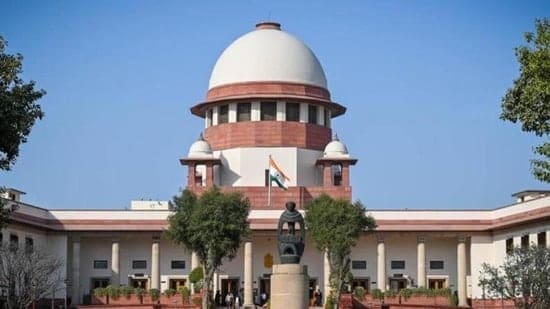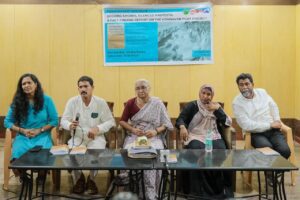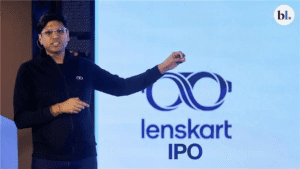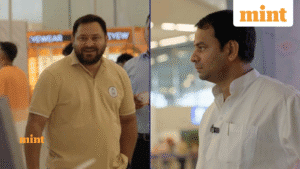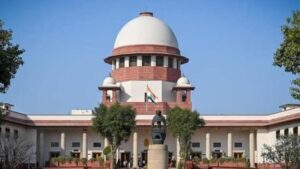The Supreme Court of India has issued a notice to the State of Rajasthan following a petition filed by Syed Sarwar Chishty, the Khadim of Ajmer Dargah Sharif. The petition challenges the Rajasthan High Court’s dismissal of an appeal concerning the acquittal of seven Hindutva men accused in the 2007 Ajmer Dargah blast case.
A bench consisting of Justice Sanjay Kumar and Justice Sandeep Mehta addressed the notice to the State of Rajasthan, condoning the delay in filing the appeal and thereby restoring the complainant’s right to be heard on the merits of the case. This was in response to a special leave petition against the High Court’s order dated May 4, 2022.
The High Court had previously dismissed the appeal against the acquittal of the seven accused, who had been charged under the Unlawful Activities (Prevention) Act (UAPA) of 1967 and the Explosive Substances Act of 1908.
Chishty’s petition questions the interpretation of Section 21(5) of the National Investigation Agency Act of 2008, arguing that the imposition of a strict 90-day limit on appeals violates Articles 14 and 21 of the Constitution of India. The petitioner contends that such a restriction arbitrarily limits the fundamental right to appeal and access to justice for victims and complainants.
The 2007 Ajmer Dargah blast resulted in the deaths of three Muslim pilgrims—a woman named Shehnaz, a 60-year-old man named Hameed, and a 13-year-old boy named Mohammad Soheb—and left 17 others injured. Investigations linked the bombing to a series of attacks by Hindu extremist groups, alleging the involvement of individuals associated with the Rashtriya Swayamsevak Sangh (RSS).
Key conspirators identified in the case include Devendra Gupta, an RSS pracharak from Madhya Pradesh, and Bhavesh Patel, who was responsible for planting the bomb. Sunil Joshi, another RSS leader involved, was found dead under suspicious circumstances shortly after the event.
Gupta and Patel were ultimately convicted under Sections 120B (criminal conspiracy) and 295A (deliberate and malicious acts intended to outrage religious feelings) of the Indian Penal Code, as well as the Explosive Substances Act and the UAPA. They were sentenced to life imprisonment.
Other suspects included Suresh Nair (alias Uday Guruji), who allegedly sourced the explosives, and Swami Aseemanand (real name Nabakumar Sarkar), accused of masterminding the attack as part of a revenge plot. Aseemanand was acquitted in 2017 when key witnesses turned hostile. Indresh Kumar, an RSS leader, was also implicated but acquitted due to insufficient evidence.
On March 8, 2017, a Special NIA Court convicted Gupta and Patel while acquitting seven others: Lokesh Sharma, Chandrashekhar Leve, Mukesh Vasani, Harshad alias Munna, Nabakumar Sarkar, Mafat alias Mehul, and Bharat Mohanlal Rateshwar. An appeal was filed on June 1, 2017, but the High Court only addressed it in 2022, dismissing it on the grounds of a 1,135-day delay.
The court referenced Section 21(5) of the National Investigation Agency Act, which limits appeal timelines to 90 days. Chishty’s petition, supported by the Association for Protection of Civil Rights (APCR) legal team, emphasized that this strict interpretation undermines the fundamental right to appeal and creates an unequal distinction between cases investigated by the NIA and other agencies.
The petition cites Supreme Court precedents, including Mangu Ram v. Municipal Corporation of Delhi and Mohd. Abaad Ali v. Directorate of Revenue Prosecution Intelligence, asserting that the right to appeal is intrinsic to the right to a fair trial under Article 21.
The APCR welcomed the Supreme Court’s decision, viewing it as a significant move toward ensuring access to justice and upholding victims’ rights in terrorism-related cases.
Tags: SC notice to Rajasthan on challenge to acquittal of Hindutva men in Ajmer Dargah blast case Extract 5 SEO-friendly keywords as tags. Output only keywords, comma separated.
Hashtags: #notice #Rajasthan #challenge #acquittal #Hindutva #men #Ajmer #Dargah #blast #case


